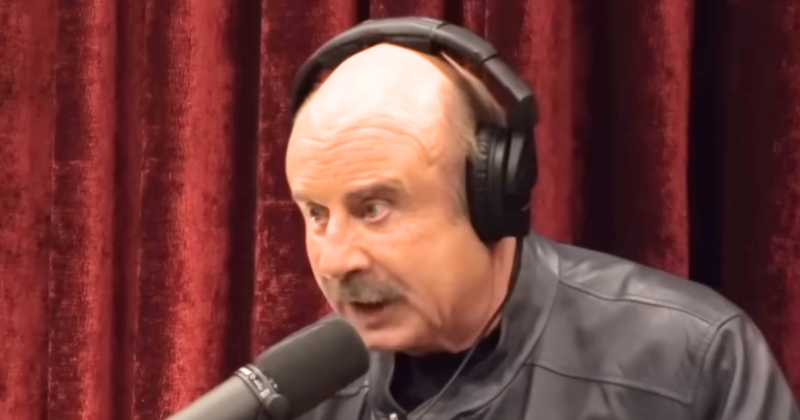A federal bankruptcy judge has delivered a devastating blow to Dr. Phil McGraw’s media venture, ruling that his company Merit Street Media cannot reorganize under Chapter 11 bankruptcy protection and must instead liquidate all assets under Chapter 7.
Judge Scott Everett issued the harsh ruling, accusing McGraw of dishonesty during court proceedings and citing evidence of deleted text messages that allegedly revealed a scheme to favor certain creditors over others.
Merit Street Media launched just last year as a joint venture between McGraw’s Peteski Productions and Trinity Broadcasting Network, a major Christian broadcaster.
The partnership quickly soured, leading Merit Street to file for Chapter 11 bankruptcy protection in July.
In that filing, Merit Street made explosive allegations against TBN, claiming the broadcaster had failed to meet over $100 million in financial obligations.
The company sought bankruptcy protection as a way to reorganize its debts while continuing operations. However, Judge Everett found serious problems with the bankruptcy filing itself.
During the hearing, he stated that McGraw was “not being forthright” about his business dealings throughout the trial proceedings.
The judge pointed to text messages presented as evidence in court.
These messages allegedly showed McGraw discussing plans to pay certain creditors while leaving others unpaid, which would constitute an attempt to manipulate the bankruptcy process.
“Candor to the court is critical,” Everett stated during the hearing.
He added a particularly damning assessment of the company’s condition, noting that the business “was as dead as a doornail when the bankruptcy was filed.”
The deletion of text messages became a central issue in the case.
The judge cited evidence indicating McGraw had removed incriminating communications that discussed his plans for selective creditor payments.
Under the Chapter 7 conversion ordered by Judge Everett, a court-appointed trustee will now take control of Merit Street Media.
This trustee will be responsible for selling off the company’s remaining assets to pay back creditors.
Those assets include Merit Street’s media library and content rights.
The proceeds from these sales will be distributed to creditors according to bankruptcy law priorities, rather than any arrangement McGraw might have preferred.
Representatives for McGraw’s Peteski Productions issued a strong response to the ruling.
The Hollywood Reporter highlighted that a spokesperson said, “We take great exception to the court’s improper assertions regarding the alleged destruction of evidence, which simply did not happen.”
The spokesperson continued defending McGraw’s actions, stating: “We will not let this stand given all that Dr. Phil and Peteski Productions have done to protect Merit Street employees, distributors and other interested parties and to resolve this unfortunate situation.”
The bankruptcy proceedings are unfolding against the backdrop of ongoing litigation between Merit Street and Trinity Broadcasting Network.
Merit Street has sued TBN for breach of contract, accusing the broadcaster of failing to meet its financial commitments to the joint venture.
After Merit Street filed for bankruptcy, Trinity Broadcasting responded by filing a countersuit.
The resulting legal battle culminated in the trial that focused on whether Merit Street’s Chapter 11 filing was legitimate.
McGraw’s financial involvement in Merit Street added another layer of complexity to the case.
He had made a loan to the company, but this financing came with a significant condition attached.
The loan was contingent upon Merit Street winning its lawsuit against Trinity Broadcasting Network.
This arrangement raised questions about McGraw’s motivations and the viability of the bankruptcy filing.
Additionally, McGraw’s production company, Peteski Productions, was proposed to serve as the debtor-in-possession during the attempted reorganization.
This would have given McGraw’s company significant control over Merit Street during the bankruptcy process.
Judge Everett characterized the entire situation as unusual.
“This case is an anomaly,” he said, before explaining his reasoning for the harsh ruling against Merit Street.
The judge stated that McGraw had planned to pay “favored creditors and not pay disfavored creditors, as his own texts show that he wanted to do.”
This selective payment scheme, if proven, would violate fundamental principles of bankruptcy law.

